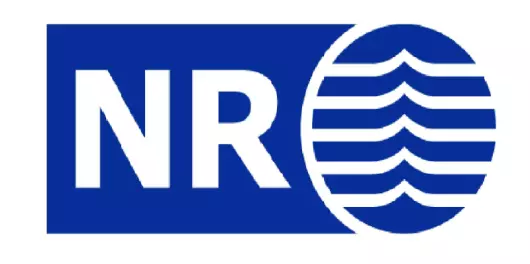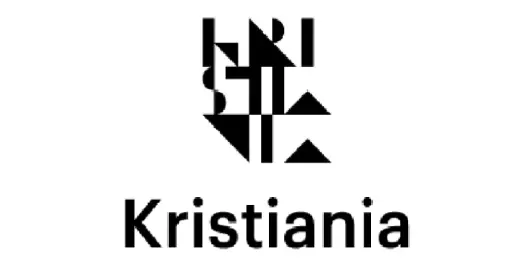Ledig stilling på Universitetet i Oslo
Blindern og Urbygningen (Foto: Wikimedia og Colourbox)
PhD-research Fellowship in Neuroscience
Deadline: 16.06.2020
Universitetet i Oslo
The University of Oslo is Norway’s oldest and highest ranked educational and research institution, with 28 000 students and 7000 employees. With its broad range of academic disciplines and internationally recognised research communities, UiO is an important contributor to society.
The Institute of Basic Medical Sciences overall objective is to promote basic medical knowledge in order to understand normal processes, provide insight into mechanisms that cause illness, and promote good health. The Institute is responsible for teaching in basic medical sciences for the programmes of professional study in medicine and the Master's programme in clinical nutrition. The Institute has more than 300 employees and is located in Domus Medica.
Job description
Applications are invited for a 3-4 year PhD-research Fellowship as PhD Candidate in neuroscience to be based at the Department for Molecular Medicine (Anatomy) University of Oslo (UiO).
The Research fellowship is funded by UiO and will be linked to the project "Aquaporin water channels in health and disease".
More about the position
The fellowship period is up to 4 years, with 3 years devoted to research education. The position entails a compulsory work load of 25% that consists of teaching and supervision duties and research assistance. The fellowship period is devoted to carrying out a project on the role of aquaporin water channels in Parkinson’s disease. Aquaporins are channel-forming membrane proteins expressed throughout the body. Brain contains several aquaporins including aquaporin-4 (AQP4) and aquaporin-9 (AQP9). We have previously shown that both these aquaporins are involved in the pathophysiology of neurodegenerative diseases such as Parkinson’s disease (PD). PD is the second most common neurodegenerative disorder, characterized by gradual loss of dopaminergic neurons of substantia nigra. More than 90% of PD cases have unknown etiology and it is believed that external factors such as toxins might play a role in the development of the disease. A key question is what makes the dopaminergic neurons of substantia nigra especially vulnerable to external toxins. We have recently shown that mice with genetic deletion of AQP9 (AQP9-KO) are more protected when exposed to an intracerebral injection of a parkinsonian toxin. In this project, we will explore the mechanisms behind this protection. The project will include use of mouse models combined with molecular biologic and microscopic techniques.
The research fellow must take part in the Faculty’s approved PhD program and is expected to complete the project within the set fellowship period. The main purpose of the fellowship is research training leading to the successful completion of a PhD degree.
The applicant must, in collaboration with her/his supervisor, within 3 months after employment, have worked out a complete project description to be attached to the application for admission to the doctoral program. For more information, please see our web site: https://www.med.uio.no/forskning/phd/
Qualification requirements
- A Master’s degree (120 ECTS) or an equivalent qualification in molecular biology, neuroscience or similar, minimum grade B (ECTS grading scale) or equivalent. The Master’s degree must include a thesis of at least 30 ECTS.
- Fluent oral and written communication skills in English
- Extensive hands-on experience with at least one of the following experimental techniques: molecular biology (RNA, DNA work, qPCR), Western blotting, immunohistochemistry
- Candidates with prior knowledge about neuroscience and/or experience of working with laboratory animals, preparation of cell cultures or sectioning will be prioritized
Personal skills
The following personal skills will be considered beneficial during evaluation of applications:
- Highly motivated and accurate candidate
- Good problem solving skills
- Ability to work both independently and as integrated member of interdisciplinary teams
- Good communication skills including interpersonal and teaching abilities
We offer
- salary NOK 479 600 – 523 200 per annum depending on qualifications in a position as PhD Research fellow, (position code 1017)
- attractive welfare benefits and a generous pension agreement, in addition to Oslo’s family-friendly environment with its rich opportunities for culture
How to apply
The application must include:
- Cover letter statement of motivation and research interests
- CV (summarizing education, positions and academic work)
- Copies of educational certificates (academic transcripts only)
- A complete list of publications and academic works
- List of reference persons: 2-3 references (name, relation to candidate, e-mail and phone number)
The application with attachments must be delivered in our electronic recruiting system, please follow the link “Apply for this job”. Foreign applicants are advised to attach an explanation of their University's grading system. Please note that all documents should be in English (or a Scandinavian language).
When evaluating the application, emphasis will be given to the applicant’s prior laboratory experience, and academic and personal prerequisites to carry out the project. Applicants may be called in for an interview.
Formal regulations
Please see the guidelines and regulations for appointments to Research Fellowships at the University of Oslo.
No one can be appointed for more than one PhD Research Fellowship period at the University of Oslo.
According to the Norwegian Freedom of Information Act (Offentleglova) information about the applicant may be included in the public applicant list, also in cases where the applicant has requested non-disclosure.
The appointment may be shortened/given a more limited scope within the framework of the applicable guidelines on account of any previous employment in academic positions.
The University of Oslo has an agreement for all employees, aiming to secure rights to research results etc.
Contact information
Apply for this job














